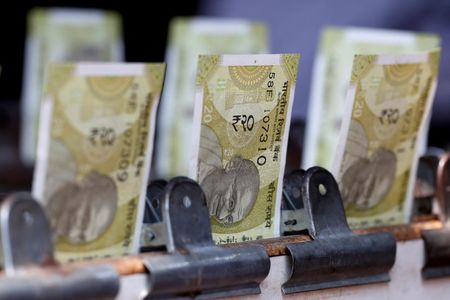By Asif Shahzad
ISLAMABAD (Reuters) -Pakistan’s cabinet on Thursday approved a supplementary budget that plans to end exemptions on sales tax and levy new duties as part of fiscal tightening measures aimed at winning funding from the International Monetary Fund (IMF).
The IMF approval is also a pivotal endorsement for Pakistan’s economy, which is struggling with external and current account deficits, a depreciating currency, struggling foreign reserves and rising inflation.
The IMF agreed last month to revive a stalled $6 billion
funding programme, but demanded further budgetary tightening and central bank autonomy from Pakistan before the next tranche could be approved.
The IMF board meets on Jan.
12 to approve the tranche.
Prime Minister Imran Khan’s government will need its allies’ support in parliament to win a simple majority to pass the finance bill.
The government aims to raise billions of rupees by withdrawing the sales tax exemptions so that all sectors pay a uniform 17%, levy new duties and revise tax collection target, officials said.
The withdrawal of the sales tax exemptions would raise 343 billion rupees ($1.93 billion), said Finance Minister Shaukat Tarin, adding that he negotiated this against the IMF’s demand of removing 700 billion rupees of exemptions.
“We didn’t do anything that will burden the poor,” he told a news conference after tabling the budget in parliament following its approval by the cabinet, amid opposition parliamentarians chanting anti-government slogans.
Parliament will debate and vote on the bill in the coming days.
Tarin said the tax exemptions would largely be removed from luxury imported items.
Tarin also introduced separate legislation to give the central autonomy.
The proposed autonomy law has not been made public yet, but officials say it will give the central bank independent powers to control price stability, monetary policy decisions and a guaranteed tenure for its governor.
Surging food and energy prices have put Khan under increasing pressure in recent months as household bills have caused growing anger among the middle classes, which had provided his government’s main support base.
($1 = 177.9700 Pakistani rupees)
(Reporting by Asif Shahzad; Editing by Emelia Sithole-Matarise and Alex Richardson)











